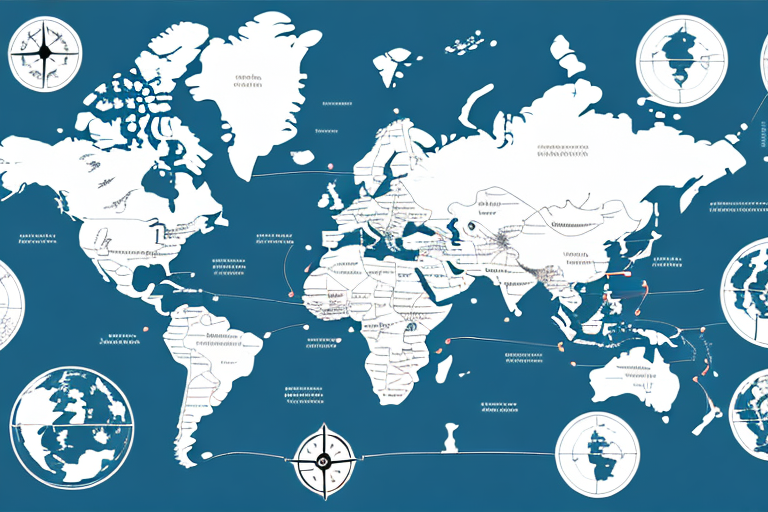Importance of Taking Risks
Are you tired of playing it safe? Living a life filled with boredom and regret? If so, it's time to embrace the power of reckless abandonment. Taking risks may feel scary, but it's essential for personal growth and success. In this article, we'll explore the benefits of reckless abandonment, strategies for taking calculated risks, and real-life examples of those who have reaped the rewards of taking chances.
Why Taking Risks is Essential for Personal Growth
Many of us are conditioned to avoid risks and stay within our comfort zones. However, embracing reckless abandonment pushes us past our limits and helps us discover new capabilities. Taking risks is essential for personal growth, allowing us to break free from routines and explore the unknown. Whether it's trying a new hobby, making a career change, or traveling to a foreign country, taking risks expands our horizons and helps us discover what we're truly capable of.
According to a study published in the American Psychological Association, individuals who take calculated risks report higher levels of satisfaction and achievement.
Moreover, taking risks helps develop resilience and adaptability. Facing challenges and obstacles teaches us to overcome them, making us more resilient. We also become more adaptable as we learn to navigate new situations and environments. These skills are valuable not only for personal growth but also for professional development. Employers often seek individuals who are adaptable and can handle change and uncertainty.
Overcoming Fear and Doubts
Overcoming Fear: How to Conquer Your Doubts and Take the Leap
Fear often holds us back from taking risks. We're afraid of failure, rejection, or the unknown. Learning to overcome these doubts is essential for taking the leap. One strategy is to break your goals down into smaller, manageable steps. This makes them feel less daunting and helps build momentum as you progress. Another effective approach is to reframe your mindset. Instead of focusing on the risks, start thinking about the potential rewards.
Failure is not the end of the world. In fact, it's through failures that we learn the most and grow the strongest. Embrace failure as a natural part of the learning process and use it to fuel your determination to succeed. Surrounding yourself with supportive people who believe in you and your goals can also make a significant difference in overcoming fear.
The Role of Intuition: How to Listen to Your Gut When Taking Risks
When taking risks, it's essential to listen to your intuition and trust your gut. Often, our instincts can guide us toward the right decision, helping us avoid unnecessary risks or seize new opportunities. However, it's important to distinguish between intuition and fear, which can sometimes feel similar. Practicing mindfulness can help develop greater self-awareness and clarity, enabling better decision-making.
Research from the National Center for Biotechnology Information highlights the importance of intuitive thinking in effective risk-taking.
Benefits of Reckless Abandonment
The Benefits of Reckless Abandonment: How Risk-Taking Can Improve Your Life
Reckless abandonment offers numerous benefits, including improved creativity, expanded horizons, and enhanced self-confidence. Taking risks stimulates our brains and pushes us outside our comfort zones, enabling us to think more creatively and boldly. Additionally, it leads to incredible experiences and encounters with new people, fostering personal growth. Success from risk-taking boosts self-confidence and self-esteem, encouraging further exploration of new opportunities.
However, it's crucial to differentiate reckless abandonment from impulsivity or thoughtlessness. Weighing potential risks and benefits ensures that risk-taking remains calculated and intentional, rather than harmful.
Finding Your Passion: Why Reckless Abandonment Can Lead to a More Fulfilling Life
Engaging in reckless abandonment exposes us to new experiences and opportunities, including the chance to discover our true passions. By taking risks and trying new things, we find activities and pursuits that bring the greatest satisfaction. Whether it's starting a new business, writing a novel, or learning a new language, reckless abandonment can lead to a more fulfilling life.
Reckless Abandonment in Relationships: Navigating the Risks and Rewards of Love
Reckless abandonment also applies to relationships and love, where taking risks can lead to incredible rewards. Balancing risk with a cautious and respectful approach is essential. Communicating openly with your partner and establishing clear boundaries and expectations are key strategies. Taking small risks in relationships, such as being vulnerable and expressing your feelings, can lead to deeper connections and intimacy.
The Science Behind Risk-Taking
The Science Behind Reckless Abandonment: Why Our Brains Crave Adventure
Why are we wired to crave adventure and risk? According to scientific research, our brains constantly seek new experiences and stimulation. The neurotransmitter dopamine, associated with pleasure and reward, is released when we take risks and try new things. Engaging in reckless abandonment and pushing past our boundaries provides a dopamine boost, creating a sense of pleasure and excitement. This is why reckless abandonment can be both addictive and rewarding.
Not everyone’s brain responds to risk and adventure the same way. Some individuals have a higher threshold for dopamine release, requiring bigger risks to feel the same level of pleasure, while others may have a lower threshold, making them more prone to addiction and risky behavior. Environmental factors, such as upbringing and culture, also influence the desire for adventure and risk-taking.
Real-Life Success Stories
From Failure to Success: Stories of Those Who Took Risks and Found Reward
Many successful individuals attribute their achievements to reckless abandonment and taking risks. For example, Oprah Winfrey was fired from her first job as a TV news reporter but took a risk by starting her own talk show, which became immensely successful. Elon Musk invested his personal wealth into SpaceX and Tesla, leading to groundbreaking advancements in space exploration and electric vehicles. Richard Branson started Virgin Records with minimal capital, which eventually grew into a global conglomerate.
However, taking risks doesn't always guarantee success. Many have failed and lost everything due to unplanned risks. It's crucial to weigh potential risks and rewards before making major decisions and to learn from failures to increase the chances of future success.
Strategies for Calculated Risk-Taking
How to Calculate Risk: Tips for Making Smart Decisions When Taking Chances
Taking risks is essential for success, but it's equally important to calculate those risks and weigh potential consequences. One method is to create a risk analysis matrix, mapping out the probability and impact of each risk. Another strategy is to consider the worst-case scenario and develop a contingency plan. Trusting your intuition and gut feelings also plays a role in making informed decisions.
Considering the potential benefits alongside the potential risks allows for more balanced decision-making. Understanding that not all risks are equal is also important; some may be minor with limited consequences, while others can have significant impacts.
Taking Risks in Business: Strategies for Entrepreneurs and Leaders
For entrepreneurs and business leaders, risk-taking is a crucial component of success. Balancing risk with a calculated approach involves conducting thorough market research to identify trends and gaps. Listening to feedback and being willing to adjust your approach based on this information is vital. Additionally, having a solid support system, including mentors or business coaches, can help navigate risks effectively.
According to the Harvard Business Review, successful entrepreneurs often embrace measured risks that are well-researched and strategically planned.
Embracing Change and Transformation
The Art of Letting Go: Why Reckless Abandonment Requires Trust and Surrender
Reckless abandonment requires letting go of attachment to specific outcomes and trusting the risk-taking process. Surrendering control can be challenging but is essential for success. This means allowing yourself to fail and trusting that you'll learn from mistakes. Surrounding yourself with supportive individuals helps maintain motivation and commitment to your goals.
Overcoming Setbacks: How to Bounce Back After Taking Risks That Don't Pay Off
Not all risks pay off, and setbacks are a natural part of the process. Learning to bounce back from these setbacks is crucial. Adopting a growth mindset, which focuses on learning from experiences rather than dwelling on failures, can facilitate recovery. Seeking support from friends, family, or a professional can also help process emotions and regain motivation.
How to Embrace Change: Using Reckless Abandonment as a Tool for Transformation
Reckless abandonment can be a powerful tool for transformation and growth, enabling us to embrace change and transform our lives. Whether it's quitting a job you dislike, embarking on a new career, or moving to a new city, taking risks can push us out of our comfort zones and lead to significant transformation. By embracing reckless abandonment and using it as a tool for change, we can create the life we truly desire.
Conclusion
Reckless abandonment may feel scary, but it's essential for personal growth, success, and fulfillment. By taking risks, we expand our horizons, discover our passions, and reap incredible rewards. Balancing risk-taking with a calculated approach, weighing the potential consequences of our actions, ensures that our risks are intentional and beneficial. Embracing reckless abandonment and adopting a growth mindset unlocks new opportunities and transforms our lives in profound ways.






















